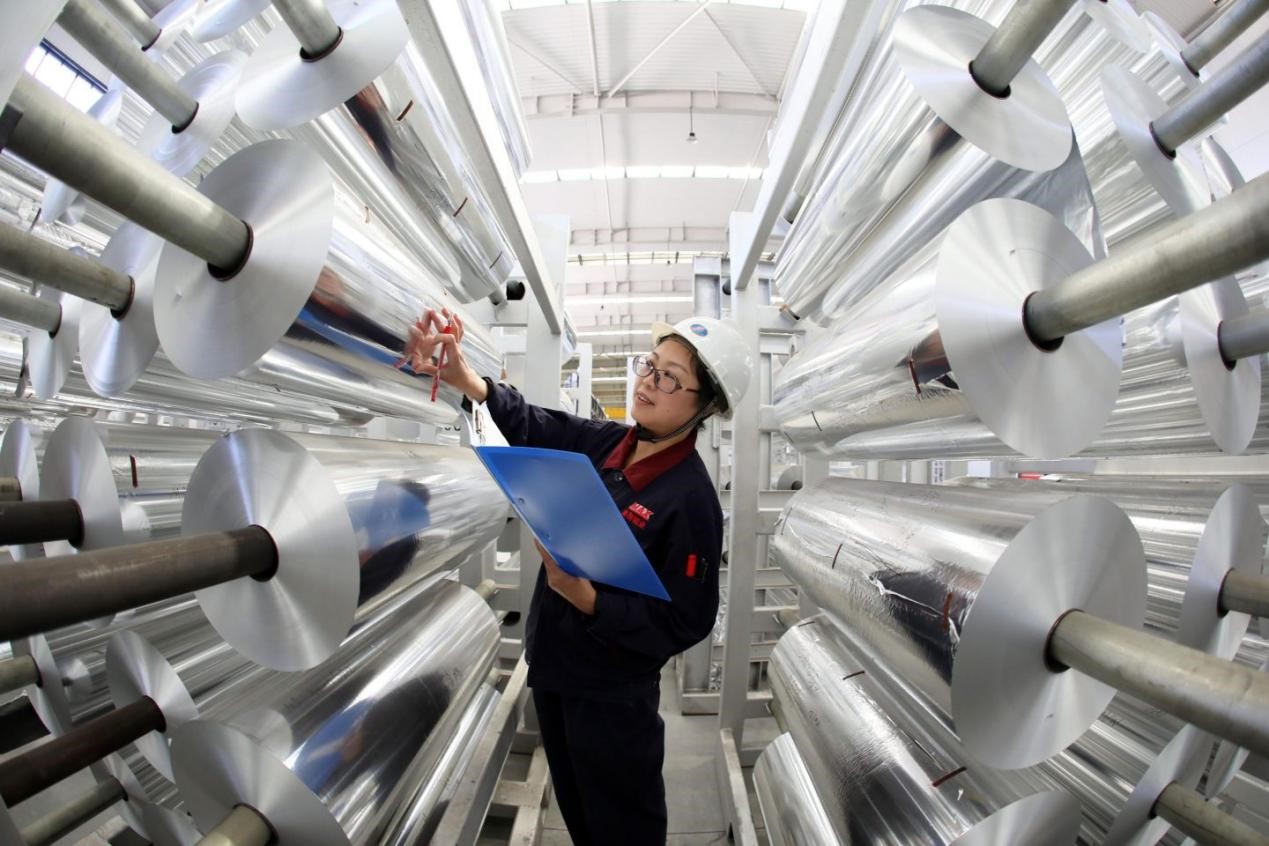
近期,包括福特、通用、百事、鲍尔等“财富500强”公司在内的十多家企业致信美国能源部长詹妮弗·格兰霍姆,要求美国联邦政府投资发展环保铝产业。这封信表明美国环保铝的供给日趋紧张。随着市场需求的激增,美国各大工业企业纷纷要求政府加大对这一关键产业的投资和支持力度,预计该产业未来的重要性将会进一步提升。
这些重要企业深知,美国已经越来越依赖外国的铝材供给了。而且随着市场需求的增加,以后美国市场上的不少铝材很可能将来自那些没有足够迹象表明他们的铝材产业足够环保的国家——比如中国(占全球市场58%的份额)和俄罗斯(占全球市场5%)等。
虽然目前美国剩下了六家原铝冶炼厂,在全球原铝产能中所占比例很小,而且还在不断缩水,但以前的情况其实并不是这样的。在2000年,美国还是全球最大的原铝生产国。但是到了2022年,美国在全球市场的份额已跌至不到2%。
福特等多家企业的公开信指出:“作为原铝材料的重要买家,我们强烈支持联邦政府通过《降低通胀法案》对铝材产业进行投资,以确保美国在这种关键原材料生产上处于领先地位。目前,美国的原铝生产地位已经岌岌可危。虽然全球对原铝的需求预计在未来几十年中还将继续增长,但美国的国内原铝产量却在持续下降,而且面临着彻底消失的风险。电价的飙升、低成本可再生能源的缺乏以及联邦投资的不足,使仅存的6家原铝冶炼厂也到了破产的边缘。”
根据《降低通胀法案》,美国政府投入了大量资金用于国内产业的环保改造和创造就业。但是由于美国原铝产业的弱小现状,它很容易被联邦投资忽视。不过由于全球对原铝(特别是未被回收的铝材)的需求预计将以前所未有的速度增长,美国的铝产量也必须同步增长,否则将不足以建设美国清洁能源产业所需的基础设施,比如电动汽车、太阳能电池板和输电线路等等。如果没有环保铝材的供给,美国将来的清洁能源革命就只能依赖那些污染度更高的铝材,而这将与美国的整体减排目标背道而驰。
这些具有前瞻性的企业认识到,他们的客户需要的是更加清洁和环保的供应链,同时美国制造企业也需要更可靠的国内铝材供应链来保障他们的产品生产。在客户需求增长的同时,这些面向消费者的企业也要跟上步伐。美国铝业(Alcoa)等铝材生产商也嗅到了未来的风向,美国铝业2022年的可持续发展报告提到了“要最大程度减少对社会和环境的影响,以降低风险和未来债务”的必要性。换句话说,原铝生产商和那些面向消费者的企业不仅将发展环保铝材视为一种重要责任,还将其视为自身商业模式的核心,乃至视为美国在全球经济中保持竞争优势的核心。
不管是环保主义者、国家安全倡导者、实业家、劳工和社会都认识到了环保铝产业的重要性,那么很显然,缺位的部分就是联邦政府的投资了。但愿美国能源部能够意识到让制造业岗位回流、重振美国工业和投资清洁能源产业的重要意义。(财富中文网)
本文作者安妮·萨特是Industrious Labs的铝业活动总监,该组织致力于通过重塑工业产业强化美国的清洁能源经济。
《财富》发表的更多必读评论
·重返办公室:为什么德州、犹他州、新泽西州等地不以减税为由强制员工回办公室坐班。
·《怪诞经济学》作者:“反对K-12教育中的数据科学毫无道理。
·职业倦怠会攻击大脑,使人更难在工作中表现出色。“强迫自己冷静”可以帮助我们有效调整。
·过犹不及:一些无害癌症何以在美国被过度医疗。
《财富》网站所载的评论文章仅代表作者本人观点,不代表《财富》的观点和看法。
译者:朴成奎
近期,包括福特、通用、百事、鲍尔等“财富500强”公司在内的十多家企业致信美国能源部长詹妮弗·格兰霍姆,要求美国联邦政府投资发展环保铝产业。这封信表明美国环保铝的供给日趋紧张。随着市场需求的激增,美国各大工业企业纷纷要求政府加大对这一关键产业的投资和支持力度,预计该产业未来的重要性将会进一步提升。
这些重要企业深知,美国已经越来越依赖外国的铝材供给了。而且随着市场需求的增加,以后美国市场上的不少铝材很可能将来自那些没有足够迹象表明他们的铝材产业足够环保的国家——比如中国(占全球市场58%的份额)和俄罗斯(占全球市场5%)等。
虽然目前美国剩下了六家原铝冶炼厂,在全球原铝产能中所占比例很小,而且还在不断缩水,但以前的情况其实并不是这样的。在2000年,美国还是全球最大的原铝生产国。但是到了2022年,美国在全球市场的份额已跌至不到2%。
福特等多家企业的公开信指出:“作为原铝材料的重要买家,我们强烈支持联邦政府通过《降低通胀法案》对铝材产业进行投资,以确保美国在这种关键原材料生产上处于领先地位。目前,美国的原铝生产地位已经岌岌可危。虽然全球对原铝的需求预计在未来几十年中还将继续增长,但美国的国内原铝产量却在持续下降,而且面临着彻底消失的风险。电价的飙升、低成本可再生能源的缺乏以及联邦投资的不足,使仅存的6家原铝冶炼厂也到了破产的边缘。”
根据《降低通胀法案》,美国政府投入了大量资金用于国内产业的环保改造和创造就业。但是由于美国原铝产业的弱小现状,它很容易被联邦投资忽视。不过由于全球对原铝(特别是未被回收的铝材)的需求预计将以前所未有的速度增长,美国的铝产量也必须同步增长,否则将不足以建设美国清洁能源产业所需的基础设施,比如电动汽车、太阳能电池板和输电线路等等。如果没有环保铝材的供给,美国将来的清洁能源革命就只能依赖那些污染度更高的铝材,而这将与美国的整体减排目标背道而驰。
这些具有前瞻性的企业认识到,他们的客户需要的是更加清洁和环保的供应链,同时美国制造企业也需要更可靠的国内铝材供应链来保障他们的产品生产。在客户需求增长的同时,这些面向消费者的企业也要跟上步伐。美国铝业(Alcoa)等铝材生产商也嗅到了未来的风向,美国铝业2022年的可持续发展报告提到了“要最大程度减少对社会和环境的影响,以降低风险和未来债务”的必要性。换句话说,原铝生产商和那些面向消费者的企业不仅将发展环保铝材视为一种重要责任,还将其视为自身商业模式的核心,乃至视为美国在全球经济中保持竞争优势的核心。
不管是环保主义者、国家安全倡导者、实业家、劳工和社会都认识到了环保铝产业的重要性,那么很显然,缺位的部分就是联邦政府的投资了。但愿美国能源部能够意识到让制造业岗位回流、重振美国工业和投资清洁能源产业的重要意义。(财富中文网)
本文作者安妮·萨特是Industrious Labs的铝业活动总监,该组织致力于通过重塑工业产业强化美国的清洁能源经济。
《财富》发表的更多必读评论
·重返办公室:为什么德州、犹他州、新泽西州等地不以减税为由强制员工回办公室坐班。
·《怪诞经济学》作者:“反对K-12教育中的数据科学毫无道理。
·职业倦怠会攻击大脑,使人更难在工作中表现出色。“强迫自己冷静”可以帮助我们有效调整。
·过犹不及:一些无害癌症何以在美国被过度医疗。
《财富》网站所载的评论文章仅代表作者本人观点,不代表《财富》的观点和看法。
译者:朴成奎
More than a dozen companies, including Fortune 500 companies such as Ford, GM, Pepsi, and Ball Corporation, recently wrote a letter to Secretary of Energy Jennifer Granholm, asking for federal investment in clean aluminum. This letter signals the growing urgency around a domestic clean aluminum supply. The market has spoken—and companies are asking for funding and support to save this key American industry that will only grow more important as demand is projected to spike.
These pioneering companies understand that the U.S. is becoming increasingly dependent on foreign aluminum supply, and as demand increases, supply could come from countries that show no substantive signs of cleaning up their industry, such as China (58% of the global market), and Russia (5% of the global market).
While the six remaining smelters in the U.S. currently constitute a small and shrinking percentage of global primary aluminum capacity, it wasn’t always the case. As recently as 2000, the U.S. was the largest global producer of primary aluminum. In 2022, the U.S. had less than 2% of the global market share.
“As significant buyers of primary aluminum, we strongly support federal investments via the Inflation Reduction Act (IRA) to ensure that the United States will be a leader in producing this critical material, which is essential to America’s economic growth,” reads the letter. “Today, primary aluminum production in the United States is in crisis. While global demand for primary aluminum is forecast to grow over the coming decades, domestic primary aluminum production has continued to decline and is at risk of disappearing. Spiking electricity prices, lack of access to low-cost renewable energy, and insufficient federal investment have pushed the remaining six primary smelters to the brink.”
As funds from the IRA are distributed to clean up American industry and create jobs, it would be easy to dismiss aluminum as a small industry because of its current state. However, the growing global demand for primary aluminum (that has not been recycled) is projected to grow at an unprecedented rate. U.S. production must grow with it to provide the very aluminum needed to build the clean energy infrastructure the IRA supports, from electric cars to solar panels and transmission lines. Without this supply, the vital clean energy revolution ahead will be reliant on higher-carbon aluminum at a time when emissions reductions are essential.
Fortunately, these forward-thinking companies see that their customers will increasingly demand cleaner supply chains, and U.S. manufacturers will need a reliable domestic supply of aluminum for their products. Demand from customers is growing, and these consumer-facing companies are keeping pace. Aluminum producers such as Alcoa see the writing on the wall too. Its 2022 sustainability report speaks to the need to “reduce risk and future liabilities by minimizing social and environmental impacts.” In other words, consumer-facing companies and aluminum producers see sustainable aluminum as not only an aspirational responsibility but also core to their business model and America’s competitive advantage in the global economy.
When environmentalists, national security advocates, industrialists, labor, and communities agree, it’s clear that the missing piece is federal investment. Let’s hope the Department of Energy is able to see the advantage in reshoring jobs, reviving a once-strong American industry, and investing in the clean energy future.
Annie Sartor is the aluminum campaign director for Industrious Labs, an organization focused on reimagining the industrial sector as a foundational part of the U.S. clean energy economy.
More must-read commentary published by Fortune:
• Return-to-office mandates: Why tax breaks are not a reason for companies in states such as Texas, Utah, and New Jersey to force employees back
• Freakonomics author: ‘Objections to data science in K-12 education make no sense’
• Burnout is attacking our brains and making it harder to excel at work. ‘Deliberate calm’ can help us adapt
• The growing case for doing less: How harmless cancers are being overdiagnosed in America
The opinions expressed in Fortune.com commentary pieces are solely the views of their authors and do not necessarily reflect the opinions and beliefs of Fortune.






